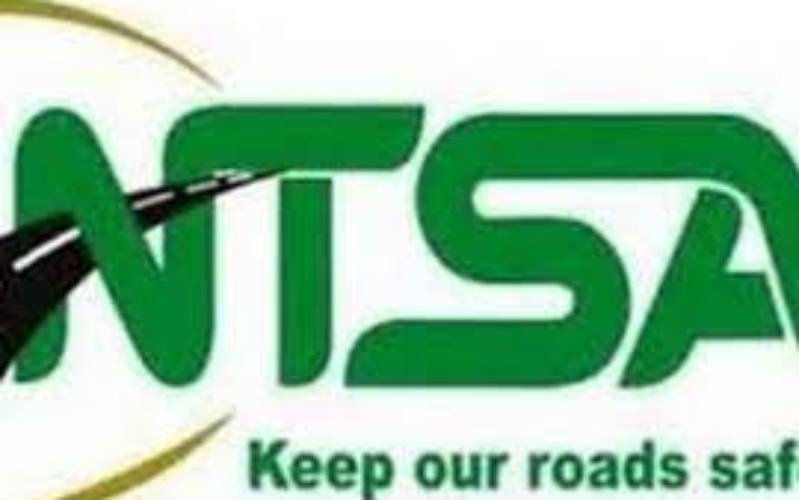Kenya: Nairobi residents could spend less time on busy highways if a new initiative to decongest the city is effected.
Among the measures unveiled yesterday, the national government and Nairobi County Government have jointly sanctioned removal of the six roundabouts along the Nairobi-Mombasa highway and a freeze on licensing of new matutus seeking to ply the city and its environs.
While unveiling the elaborate plan to decongest Nairobi, Cabinet Secretary for Transport Michael Kamau said the initiative in the short, medium and long-term would control the flow of vehicles in and out of town.
The short-term solution, he said, would involve review of public service vehicles (PSVs) termini, bus stops and routes.
Also speaking during the launch of the report of the Executive Task Force at City Hall yesterday, Nairobi Governor Evans Kidero partly blamed oversupply of PSVs for jams on most city roads.
“Nairobi currently has over half a million vehicles and is home to 7,000 of the 8,000 vehicles registered in the country each month,” said Dr Kidero.
“We have stopped the licensing of new PSVs until a demand audit is conducted to give us figures of where we need new vehicles and by how much,” said Kidero.
He said the government hopes the freeze on licensing of new matutus will allow those that already exist to operate at optimum capacity while easing the pressure of traffic on the main city routes.
Mombasa Road, which is the main access road to the town from the Jomo Kenyatta International Airport, has been a big challenge for travellers in and out of the central business district, with many missing their flights.
The road masterplan recommends removal of the five roundabouts and to substitute them with signalised intersections to ease traffic jam.
This, according to the report, would address traffic movement along the A 104 (Waiyaki Way-Uhuru Highway-Mombasa Road) where 70 per cent of traffic builds up during rush hour thereby hindering flow of vehicles.
The report indicates that the changes would improve the flow of traffic by 30-40 per cent along the intersection between University Way and Uhuru Highway, Kenyatta Avenue and Uhuru Highway, Haile Salassie Avenue and Uhuru Highway, and Bunyala and Lusaka road roundabouts.
Currently, the county government has signed agreements with a number of companies such as Zuku and Jamii Bora to beautify the roundabouts on the 20km stretch, said Kidero.
“We have noted that PSVs have converted some streets in the CBD into passenger termini, causing congestion,” he said.
Stay informed. Subscribe to our newsletter
He also blamed indiscipline among some private vehicles owners who also contribute to traffic congestion.
TRAFFIC CONCERNS
The CS said the initiative to ease traffic flow was targeted at both private and public service vehicles.
“We are not targeting matatus but all vehicles in the town. We know private vehicles are the majority in town with 500,000 vehicles coming into town everyday,” Mr Kamau said.
According to the CS, this process will need the support of all stakeholders in the transport industry.
Kidero said for the city to solve the traffic concerns, a task force has been constituted to continuously identify causes of traffic bottlenecks and come up with effective solutions.
Kidero noted that the city was losing around Sh227 million ($2.5 million) a day over traffic jams, which he said was of great concern to the country.
“According to research by the World Bank, traffic jams cost the city around two per cent of the country’s GDP annually,” he said.
He said the high growth rate of the matatu sector was poorly managed, causing traffic problems in the city.
“The current public commuter system is overstretched by the increasing demand, yet it is also poorly regulated,” he said.
The governor said the two arms of government will embark on a medium-term solution of expanding the road network to address the problem.
Kamau further disclosed that the Government was in talks with insurance companies with a view of putting in place punitive fines and premiums for repeat traffic offenders.
He warned that PSV operators flouting rules might be forced to pay higher insurance premiums as the Government moves to reduce road carnage in the country.
“There are matatu Saccos that are known to be very notorious and they act with impunity,” he said, adding that the ministry had opened discussions with insurance companies to charge premium cover for repeat traffic offenders.
 The Standard Group Plc is a
multi-media organization with investments in media platforms spanning newspaper
print operations, television, radio broadcasting, digital and online services. The
Standard Group is recognized as a leading multi-media house in Kenya with a key
influence in matters of national and international interest.
The Standard Group Plc is a
multi-media organization with investments in media platforms spanning newspaper
print operations, television, radio broadcasting, digital and online services. The
Standard Group is recognized as a leading multi-media house in Kenya with a key
influence in matters of national and international interest.
 The Standard Group Plc is a
multi-media organization with investments in media platforms spanning newspaper
print operations, television, radio broadcasting, digital and online services. The
Standard Group is recognized as a leading multi-media house in Kenya with a key
influence in matters of national and international interest.
The Standard Group Plc is a
multi-media organization with investments in media platforms spanning newspaper
print operations, television, radio broadcasting, digital and online services. The
Standard Group is recognized as a leading multi-media house in Kenya with a key
influence in matters of national and international interest.








